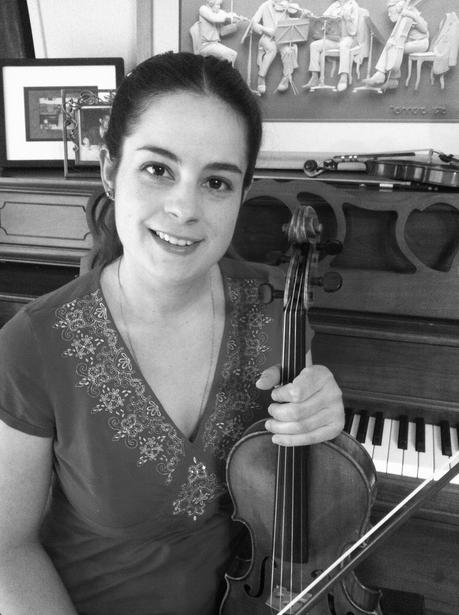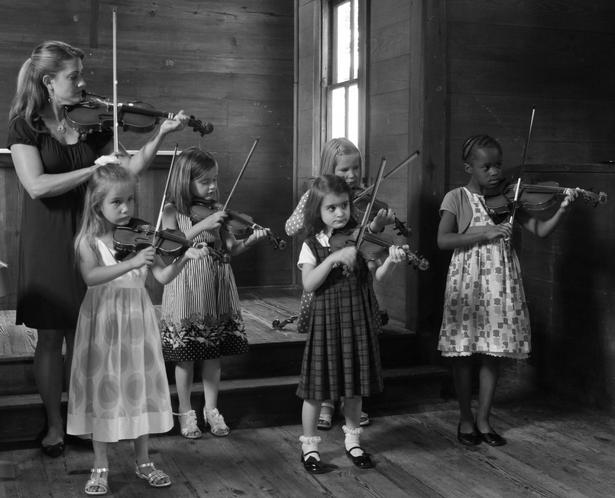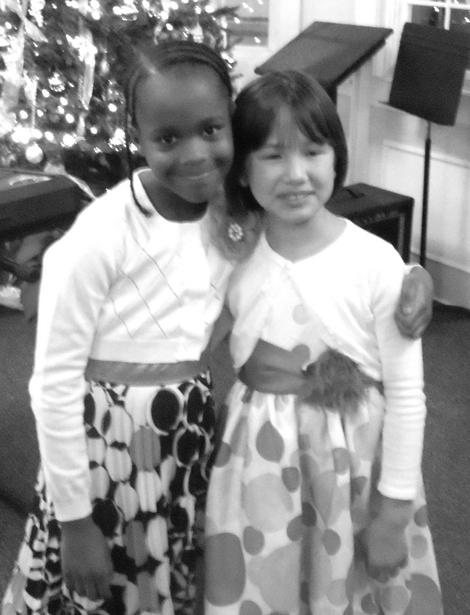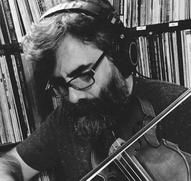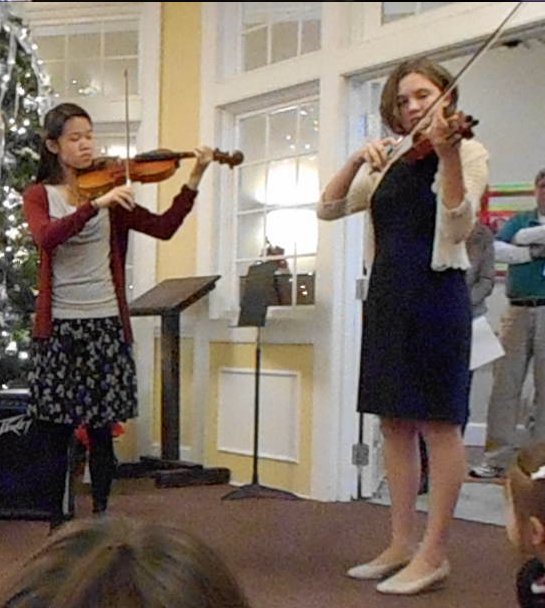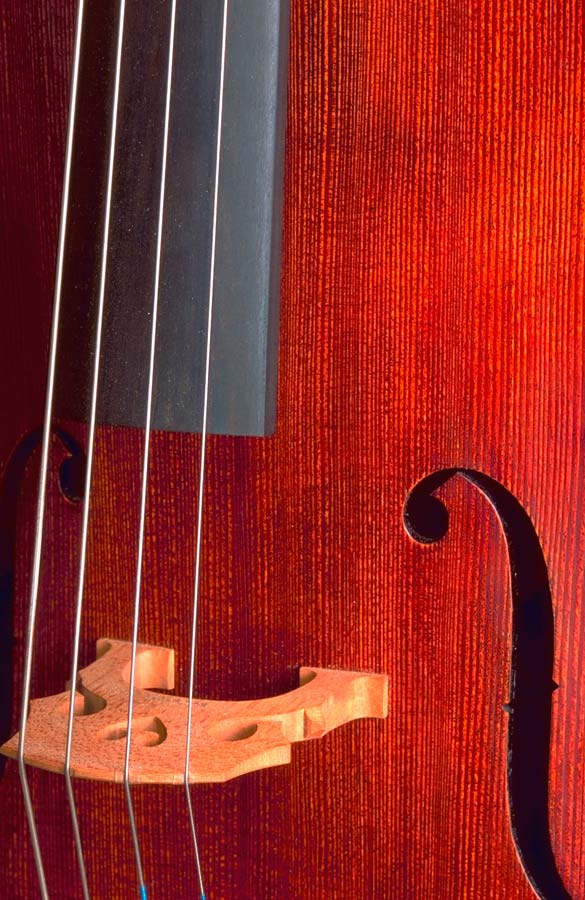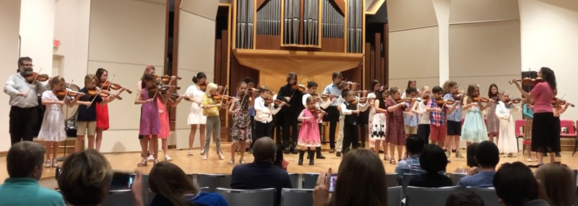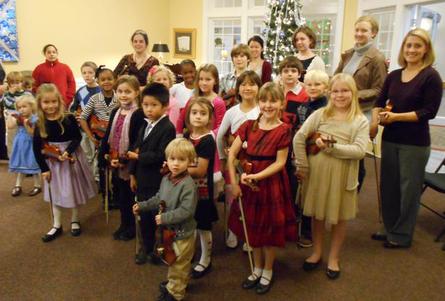About the Teachers
Violinist Amelia Weesner studied with some of the
finest violin teachers in the country, including Nicholas MannÂ
(Juilliard and Manhattan School of Music), Robert MannÂ
(Juilliard String Quartet), Mitchell Stern (Manhattan School ofÂ
Music and American String Quartet), and Elaine RicheyÂ
(Galamianâs assistant at the Curtis Institute and NaumburgÂ
winner). She was accepted into University of North CarolinaÂ
School of the Arts as a young high school student, and went onÂ
to also earn her Bachelor of Music (Violin Performance)Â andÂ
Masters in Music (Violin Performance) from UNCSA. WhileÂ
pursuing her Masterâs degree she was awarded a graduate musicÂ
theory assistantship, and she won the UNCSA ConcertoÂ
Competition. Mrs. Weesner traveled the country, from OrlandoÂ
to Brooklyn to Alabama, and finally decided to stay in her birth
state of North Carolina, marry her amazing husband Joshua, andÂ
start a family.
Amelia was a member of the Greensboro Symphony Orchestra for eight years. She has also been a member of the Winston-Salem Symphony, the Huntsville Symphony Orchestra, and the Bach Festival Orchestra. Mrs. Weesner has 23 years of teaching experience and registered teacher training in Suzuki Books 1 - 4.Â
Both Amelia and Joshua grew up in strong Suzuki studios in the 1980's. Knowing firsthand how valuable a good Suzuki studio can be for a student's education, they have built their Suzuki violin studio. In addition to managing the studio, teaching her wonderful students, and performing locally, Mrs. Weesner is honored to have her most important career ever, which is mother to her five beautiful children.
Multi-talented Joshua Weesner is a violinist, composer,Â
songwriter, arranger, orchestrator, and recording engineer.Â
His violin training began in childhood as a Suzuki studentÂ
under Margie Keller. At the young age of 14 his studiesÂ
continued at the University of North Carolina School of theÂ
Arts under the tutelage of Kevin Lawrence. He also attendedÂ
competitive summer programs such as the MeadowmountÂ
School of Music, Killington Music Festival, and the HenryÂ
Mancini Institute.Â
Mr. Weesner has been a contract member of theÂ
Winston-Salem Symphony, the Greensboro SymphonyÂ
Orchestra, the Huntsville Symphony Orchestra, and theÂ
Chattanooga Symphony. As a recording artist and touring musician, he has performed with Ray Price and the Cherokee Cowboys, the Collection, Martha Bassett, and many more.
As an accomplished recording engineer, composer, and orchestrator, Mr. Weesner enjoyed an extensive career providing custom music services for touring stage productions. He formerly worked for the music notation software company Notion Music. His positions there included Quality Assurance Lead, Sound Editor, and Manager of Live Services. With Notion Music as well as independently, Joshua was the Associate Music Supervisor for the national and international touring productions of: Cathy Rigby is Peter Pan, The Wizard of Oz, Annie, Baayork Lee's A Chorus Line, Jekyll and Hyde, Franco Dragone's India Circus, and Kung Fu Panda.Â
Mr. Weesner has over ten years of experience teaching violin to students age three through adult, from beginner to pre-college level. For beginners, he uses the "mother-tongue approach" of the Suzuki Method, for the benefit of ear-training and basic violin technique. For advanced students, Mr. Weesner moves to traditional methods and repertoire. For group classes and recitals, Joshua and Amelia like to team-teach, combining their efforts and their students for these larger group learning experiences. Joshua's registered Suzuki teacher training includes Books 1 - 6 and Practicum. He strives to make music interesting, challenging, and fun for students of all ages! Â
How To Join the Studio:
1. Contact us to schedule a lesson observation and "meet & greet." This is a free trial period in which you meet us and learn about violin lessons with us. There is no commitment or payment required for this. We will try to combine your lesson observation with your "meet & greet," to save you some time. Before you attend your first observation, we must have your phone number for you that is not just a work number. Â
2. After your lesson observation/s and "meet & greet," secure a lesson time slot and schedule your first lesson.Â
Please do not obtain a violin yet. Please ask questions about violin renting/purchasing during our meet & greet.Â
Please keep in good communication with us and continue contacting us until your first lesson is scheduled. Once you have scheduled your first lesson and submitted your first payment, you are fully registered for lessons.Â
We are happy to hear from you, and we hope you can join us!Â
Our Program: Information for Beginners
With weekly private lessons, students receive individual attention that is crucial for the student's skill development. Advanced players make violin look easy, but in truth it requires many, many years of private lessons with consistent, dedicated home practice. The journey is amazing, and filled with benefits that profoundly affect the student's total development. In our studio, the parent observes and participates in the private lessons. For the rest of the week, the student practices daily at home, with the parent as the "home teacher." Parents will be more hands-on with younger students. When students are older and more independent, the parent is still involved as one who oversees and supports the student's efforts. Â
A very important component of our program is group classes. In the group setting, students work on the skills they are learning in the private lessons, expanding on those skills in a fun yet challenging way along with their friends and peers. We play games with our pieces that are only possible to play in the group setting. Also, when students see other young students playing violin at various levels, this not only teaches them more about violin, but inspires and motivates them to push forward with a positive and healthy attitude! Beginner students are inspired by advanced students, and advanced students encourage each other and the beginners. Sometimes students of similar ages and ability will engage in a bit of friendly competition with each other-- more inspiration to keep working hard in order to make progress. Â
All students participate in the recitals, which we have at least twice per year. We give recitals to our community at places such as assisted living centers, and we also have a yearly formal recital in a recital hall or other formal setting. For our formal recital, every student performs a solo, in addition to pieces performed as an ensemble. The teachers also perform solos and/or duos as much as possible, so that the students can hear them and see their example.
This is a Suzuki Program. What is Suzuki?Â
Dr. Suzuki was a Japanese violinist who founded the Talent Education Institute in Matsumoto, Japan. For many years he observed children and studied how they learn. His results at the Talent Education Institute were amazing, and his efforts have had a profound impact on music education throughout the world. Here are the main principles of the Suzuki approach:
1. Every child can learn to play the violin. We pursue excellence with each child.Â
2. The teacher, parent, and student work together. The parent is involved with lessons and is proactive at home as the "home teacher" or "practice partner."Â
3. Music is taught as a language. From birth, a baby continually hears his or her parents' language at home, and learns it by age 2-3. Similarly, Suzuki students listen to music many times every day, even from birth. Older students entering the program start their listening right away. Ear training is crucial, in addition to note-reading. Â
Children Aged 0-2
For parents of children aged 0-2, we will freely give information about how to create an environment at home that fosters music education. If a child can learn his/her parents' language, then s/he can learn music!Â
           -Play the Suzuki CDs on a stereo in the home every       day! Obtain the Suzuki CDs or albums. There are         8 total, plus Mozart Concertos Numbers 4 & 5.           Purchase one or more at a time until you have           collected all. Make a daily habit of providing this          listening environment for your child. You can do this      while the chid is playing, eating, falling asleep, or         any time.Â
â      -Obtain professional classical music recordings, and Â
      play them in the home every day. (Contact us ifÂ
       you would like a list of suggestions.)
         -Read Nurtured by Love, by Shinichi Suzuki. AnotherÂ
      suggestion is Ability Development from Age Zero,         also by Suzuki. Â
     -Contact us for more information.Â
Children Aged 3 and up
We love to start children on violin as young as age 3 or 4. This really is a great age to start. If you have the choice, we recommend starting between ages 3 and 8 when possible. However, children can begin at any age. Â
Middle And High School Beginners
Middle and high schoolers can achieve so much through violin. Teen beginners find incredible value in learning violin. They learn perseverance, confidence, how to learn, time management, leadership, poise, problem-solving, how to realize their own potential, self-expression, plus an artistic and creative hobby that they will enjoy throughout life.  Â
Copyright 2011-2024 Amelia Weesner. All rights reserved. Unauthorized use of any photographs and/or content contained on this website is strictly prohibited.Â
.
.
Learning Disabilities and Physical DisabilitiesÂ
We enjoy working with children who have learning and physical difficulties or disabilities. Our experience includes developmental delays, dyslexia, autism, Asperger syndrome, fibromyalgia, motor skills disorder, multiple sclerosis, severe memory loss, and hearing loss. Learning violin is immensely beneficial to both brain and physical development.Â
What about preparing for college or music conservatory?
Joshua and Amelia are both qualified to bring students to the pre-conservatory level. We currently have graduates who have gone on to study music at the college level, and who have gone on to be professional musicians. There are many opportunities to draw from standard repertoire, especially after Books 4-6. When a student finishes Suzuki Book 10 (Mozart Violin Concerto #4), we continue working on repertoire from the standard violin repertoire. (Bach Partitas, Kreisler Praeludium and Allegro, Monti Czardas,Â
Bruch Violin Concerto, Mendelssohn Violin Concerto, Lalo Symphonie Español, and so on.)Â
Mr. Josh leads a group class for young beginners
An 18-month old copies the other children during classÂ
Two teen beginners perform a duet
WEESNER VIOLIN
S T U D I O
Weesner Violin Studio
